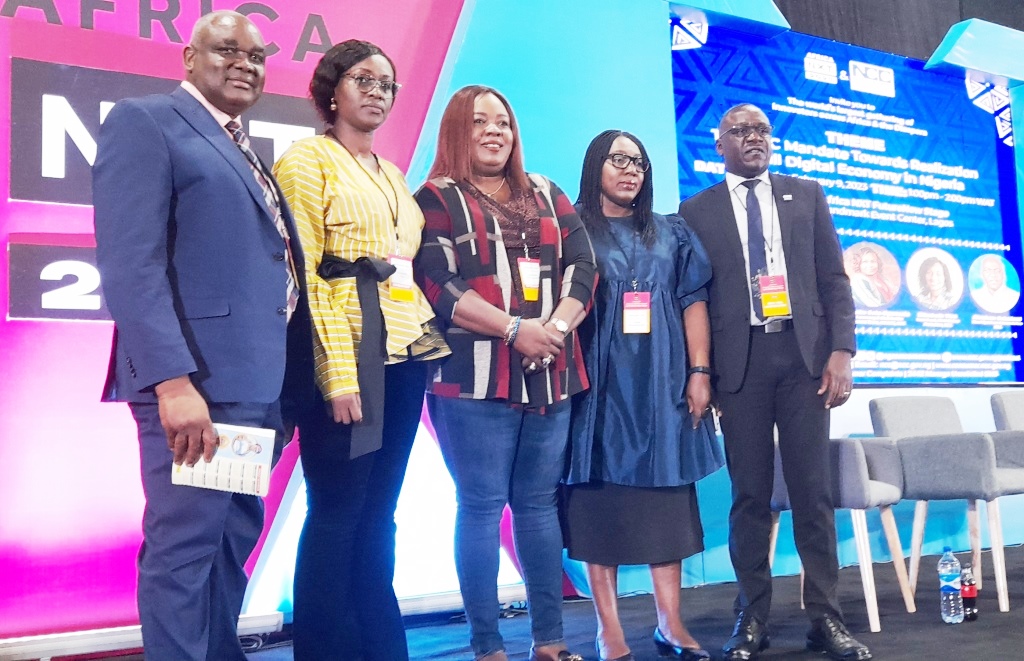The Nigerian Communications Commission (NCC) has completed all the preparations required to organise a celebration of World Consumer Rights Day (WCRD) in Abuja in 2023.
The occasion will draw attention to the NCC’s legislative efforts to promote the use of clean energy in the telecoms sector.
The Commission has continued to strive for consumer protection and enlightenment ever since it declared 2017 as the Year of the Telecom Consumers and honoured telecom consumers by tying in with the worldwide theme for the memorial ceremony to celebrate the Day with historic activities.
Considering that the Commission first did this in 2017 when it proclaimed that year to be the Year of the Telecom Customer, it has since become something of a tradition. The 2023 edition is themed “Empowering Consumers through Clean Energy Transitions.”
Read also: USAID Will Electrify 10,000 African Health Facilities With Renewable Energy
Remarks from NCC executives
According to Barrister Adeleke Adewolu, Executive Commissioner for Stakeholder Management at the Nigerian Communications Commission (NCC), the theme provides an opportunity for the NCC to discuss with beloved telecom consumers and other stakeholders, along with the public, the policies it has instituted, and other actions are taken, to encourage operators in the sector to transition to environmentally friendly and renewable energy sources in their procedures.
Adewolu, who represented Prof. Umar Garba Danbatta, the Executive Vice Chairman and Chief Executive Officer, at the committee’s inauguration to organisation the event, stated that the Commission is committed to reducing the impact that telecommunications operation has on climate change and the environment. He also made note of the fact that the peculiarities of Nigeria’s electricity supply have resulted in the telecommunications sector being a contributor to carbon emissions.
According to Danbatta, who is a Member of the Renewable Alternative Energy Society (FRAES), studies have indicated that renewable energy and energy efficiency, supplemented by substantial electrification, can deliver over 90 percent of the necessary reductions in energy-related carbon emissions. According to him, the biggest possibility to speed up the energy transition taking place around the world is to increase the amount of electricity that is generated by renewable sources.
Danbatta shares more details on the impact of the mission
Danbatta remarked, “The theme is very apt this year, as we know the implication of the climate change disaster facing the world. So, as a Commission, we are committed to reducing the impact of climate change. The telecoms sector contributes to global emissions, particularly when you realize that there are over 54,000 base transmitter stations powered, in some cases 24 hours, seven days a week, by generators. You can just imagine the emissions from these.”
As part of the Commission’s commitment to preserving the environment for consumers and other subscribers of telecom services, he explained that the Commission was already looking into introducing a policy to encourage ethical energy sources. This is a move that is also in tandem with the process of actualizing some of the most important items of the Sustainable Development Goals. He further explained that the Commission was already looking into introducing a policy to encourage ethical energy source (SDGs).
The Executive Vice Chairman (EVC) continued by stating that, in recent years, the Commission has presented a regulatory framework on infrastructure sharing and collocation among the licensees, which, according to him, has encouraged operators to fully maximise their already-deployed infrastructure.
